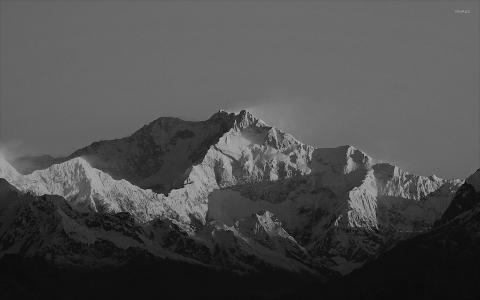
The summary is this. Daiva is hidden, a secret. It comes suddenly and unexpectedly, and cannot be grasped by the logic of causality. The word in Saṃskṛta is “ākasmika” — kasmāt means from where — “akasmāt” means that one doesn’t know from where it came. It is not possible to determine the causes and effects of such an occurrence. Since daiva is not directly perceptible, we forget it. The blow of despondency, if it hits us, becomes tolerable if...

Since saṃsāris are thus different from saṃnyāsis, the interest and regard of saṃsāris towards karma is different from that of saṃnyāsis. However,the meaning that we derive from the above śloka from the point of view of saṃsāra is not conflicting with or incongruous with that derived from the point of view of saṃnyāsa. This new path will set a context for people in the present age and time.
Let us see the individual words of the above verse, one...

Managing the family is a vrata. Marriage is a dharmic ritual. The transactions with the world that is done for these are opportunities for performing dharma. Household chores that are performed with this feeling are akin to tapas. It can also be thought of as yajña. We have already seen that the Vedas extol the entire life and all the worldly transactions of a jñāni as a great yajña.
tasyaivaṃ viduṣo yajñasyātmā yajamānaḥ ।
Mahānārāyaṇa-...

A gṛhastha performs karmas out of desire — for the wellbeing of his wife and children and for the sake of his friends and relatives. Worldly life becomes possible only if householders have those desires. His dharma is to take care of his family. Therefore, he performs certain karmas to support his dharma. If he thinks that he is performing all the karmas as it’s dharma and not for his own pleasure and satiation, it is as good as tyāga. This...

Note
sapta-daśādhyāya-gaḻoḻ
Vistarisida dharma-tattva-gaḻan-īgaḻ saṃ- ।
kṣiptadi peḻvaṃ guru tan-
nāpta-sakha-vyāja-diṃde loka-hitārthaṃ ॥ 1 ॥
For the benefit of the world,
on the pretext of his friend
The Guru now briefly
Explains the principles of dharma
That he described in chapters seventeen.
karma-sumārcana-vidhiyaṃ
ḍharmada nija-para-hitārtha-saṃskāragaḻaṃ ॥
nirmaman-adhidharmateyaṃ ।
nirmalinada yajña-dāna-tapagaḻa...

Let us now reflect a little upon its meaning.
1.Om
tasmādomityudāhṛtya yajñadānatapaḥkriyāḥ |
pravartante vidhānoktāḥ satatam brahmavādinām ||
BG 17.24
"The votaries of Brahma perform yajña, dāna and tapas after uttering Om".
We have discussed the meaning of Om in the eighth chapter under "Omityekākṣaraṃ Brahma." Om has three constituent units of a + u + m. When considered separately, they can be construed as representing either the...

Arjuna now asks
ye śāstravidhimutsṛjya yajante śraddhāyānvitāh ।
teṣāṃ niṣṭhā tu kā kṛṣṇa sattvamāho rājastamah ॥
BG 17.1
Some people in the world possess śraddhā, but not in the rules of the śāstra but in something else imagined by themselves. What happens to them?
We often see such people around us. There are new gurus everyday teaching their newer meditative practices. The Svāmī with the perfumed beard, the svāmī who sat for eight days...

There are four kinds of activities of the buddhi. The first is analysis which means separating the object of inquiry into its constituent elements. The second is classification which is grouping the various components and properties of the object of inquiry. The third is causality which is identifying the cause-effect relationship as well as the estimation of the amount of a certain substance needed to achieve a specific effect. The fourth kind...

Note
śraddhèyoḻamirpudu trai-
vidhyaṃ prakṛtijaguṇatrayāgatamadariṃ |
buddhi samaṃtoṃtatsad-
baddhamiral śraddhèyaduve saṃsiddhikaram ||
There are three kinds of śraddhā,
arising from the guṇa-triad born of prakṛti.
When buddhi is completely restrained by
Om, Tat, Sat, śraddhā gives rise to perfection.
Summary
Food, yajña and dāna are three-fold according to the three components of prakṛti - sattva, rājas and tāmas. During all of our life...

Therefore, it does not mean that belief in śāstra means that the buddhi is going to stop working. In the sixth chapter, Bhagavān himself has explained how important the buddhi is.
buddhi-grāhyam atīndriyam ॥
The nature of the ātmā is beyond the senses and the manas. The Upaniṣat says —
yanmanasā na manute yenāhur-mano matam ॥
Kenopaniṣat
yato vāco nivartante । aprāpya manasā saha ॥
Taittiriyopaniṣat, brahmānanda-vallī 9.1
Thus, the...
